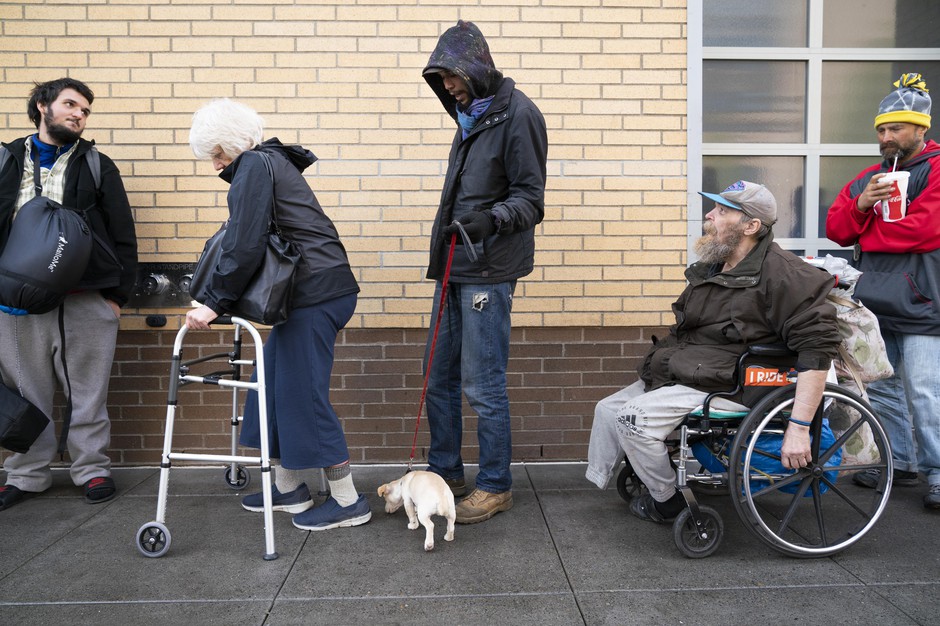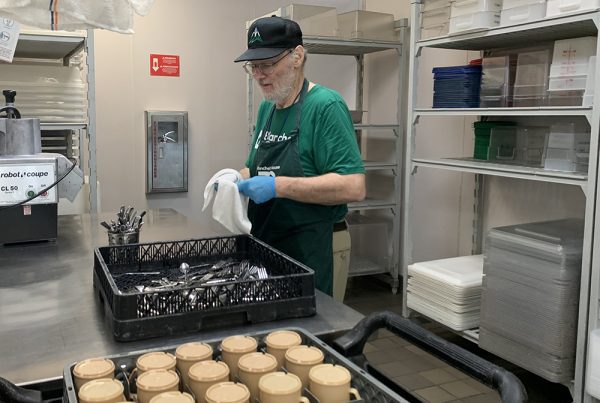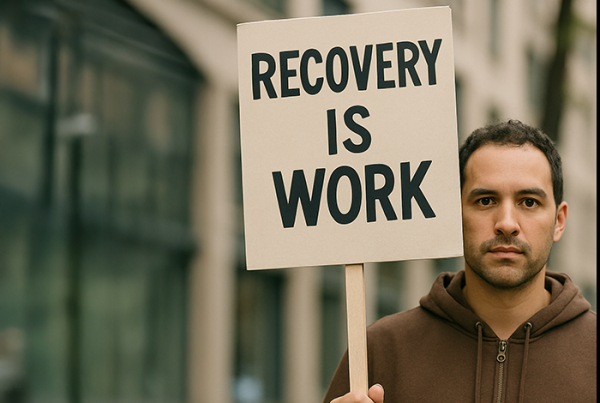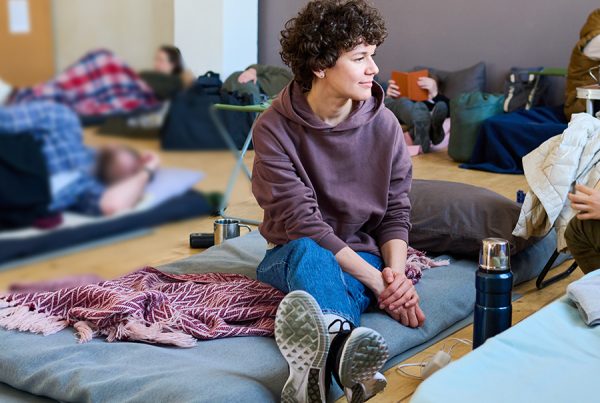While officials remain worried about the public health implications of crowded lines, the governor’s office clarified that it will not be shutting down organizations like Blanchet House for failing to space them out.
The nonprofit’s executive director, Scott Kerman, said demand has reached an all-time high for the small organization as many of the pop-up operations that gave out food in churches, parks and under the Burnside Bridge shutting down. Many were staffed by elderly volunteers, for whom continuing to help would now be too risky.
Blanchet House now needs to serve between 1,500 to 1,600 meals each day — a 40% jump since before the pandemic. Kerman’s prepared for demand to rise to 2,000 meals by next week.
At the same time, food donations to Blanchet House have dropped dramatically as bakeries and restaurants have shuttered. Last week, while everyone from the Oregon Zoo to the Hyatt Regency cleaned out their refrigerators, Blanchet House took in more than 30,000 pounds of food. This week, they’ve only taken in a few thousand pounds. Next week, they’ll have to start buying their own food.
Add the governor’s ask that people space out — and the potential legal and health consequences of not doing so — and Blanchet House has reached a crisis point.
“We’re kind of faced with Sophie’s choice,” said Kerman. “We need to feed these people. They need to eat. They are community members and they are in desperate need right now — and to do that they have to queue up.”
But they simply don’t have the resources to create a line that follows Brown’s order, Kerman said. Their line right now already stretches up to three city blocks.
“Let’s just assume hypothetically we could do this. Our line would be six blocks long. How do we supervise a line that long and keep people separated? What prevents somebody with no clue of what’s going on from seeing a gap in line and stepping into it because why wouldn’t you?” he said.


















